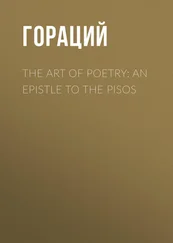Charles Gore - St. Paul's Epistle to the Ephesians - A Practical Exposition
Здесь есть возможность читать онлайн «Charles Gore - St. Paul's Epistle to the Ephesians - A Practical Exposition» — ознакомительный отрывок электронной книги совершенно бесплатно, а после прочтения отрывка купить полную версию. В некоторых случаях можно слушать аудио, скачать через торрент в формате fb2 и присутствует краткое содержание. Издательство: Иностранный паблик, Жанр: foreign_religion, foreign_antique, foreign_prose, на английском языке. Описание произведения, (предисловие) а так же отзывы посетителей доступны на портале библиотеки ЛибКат.
- Название:St. Paul's Epistle to the Ephesians: A Practical Exposition
- Автор:
- Издательство:Иностранный паблик
- Жанр:
- Год:неизвестен
- ISBN:нет данных
- Рейтинг книги:4 / 5. Голосов: 1
-
Избранное:Добавить в избранное
- Отзывы:
-
Ваша оценка:
- 80
- 1
- 2
- 3
- 4
- 5
St. Paul's Epistle to the Ephesians: A Practical Exposition: краткое содержание, описание и аннотация
Предлагаем к чтению аннотацию, описание, краткое содержание или предисловие (зависит от того, что написал сам автор книги «St. Paul's Epistle to the Ephesians: A Practical Exposition»). Если вы не нашли необходимую информацию о книге — напишите в комментариях, мы постараемся отыскать её.
St. Paul's Epistle to the Ephesians: A Practical Exposition — читать онлайн ознакомительный отрывок
Ниже представлен текст книги, разбитый по страницам. Система сохранения места последней прочитанной страницы, позволяет с удобством читать онлайн бесплатно книгу «St. Paul's Epistle to the Ephesians: A Practical Exposition», без необходимости каждый раз заново искать на чём Вы остановились. Поставьте закладку, и сможете в любой момент перейти на страницу, на которой закончили чтение.
Интервал:
Закладка:
Further than this, when St. Paul is addressing himself to Gentiles who had received no leavening of Jewish monotheism, it is most striking how he throws himself back on those common philosophical and religious ideas which were permeating the thought of the Empire. 'The popular philosophy inclined towards pantheism, the popular religion was polytheistic, but Paul starts from the simplest platform common to both. There exists something in the way of a divine nature which the religious try to please and the philosophers try to understand[ 24 24 Ramsay, l. c. p. 147.
].' Close parallels to St. Paul's language in his two recorded speeches at Lystra and at Athens, can be found in the writings of the contemporary Stoic philosopher Seneca[ 25 25 Lightfoot, Galatians , 'St. Paul and Seneca,' pp. 287 ff.
], and in the so-called 'Letters of Heracleitus' written by some philosophic student nearly contemporary with St. Paul at Ephesus[ 26 26 See app. note B , p. 253.
]. In exposing the folly of idolaters he was only doing what a contemporary philosopher was doing also, and repeating ideas which he might have learnt almost as readily in the schools of his native city Tarsus – which Strabo speaks of as the most philosophical place in the world, and the place where philosophy was most of all an indigenous plant[ 27 27 'The zeal of its inhabitants for philosophy and general culture is such that they have surpassed even Athens and Alexandria and all other cities where schools of philosophy can be mentioned. And its pre-eminence in this respect is so great because there the students are all townspeople, and strangers do not readily settle there.' Strabo, xiv. v. 13. I do not suppose that St. Paul received any formal education in Greek schools at Tarsus. But I think we must assume that at some period St. Paul had sufficient contact with Gentile educated opinion, whether at Tarsus or elsewhere, to be acquainted with widely-spread religious and philosophical tendencies.
] – as at the feet of Gamaliel in Jerusalem. Certainly Paul the apostle to the Gentiles was also Saul of Tarsus and the citizen of the Roman Empire in whose mind the idea and sentiment of the empire lay already side by side with the idea of the catholic church.
Such a statement as has just been given of the relation of the Roman organization to the Church is undoubtedly true. And it is also indisputable that St. Paul was in fact the pioneer in using the empire for the purposes of the Church. But it is more questionable to what extent the idea of the empire as the handmaid of the Church was consciously and deliberately, or only unconsciously or instinctively, present to his mind; and in particular it is questionable how far the peculiar exaltation of the epistles of the first captivity is due to St. Paul's realization that in getting to Rome, the capital and centre of the Empire, he had reached a goal which was also a fresh and unique starting-point for the evangelization of the world.
To some extent this must certainly have been the case[ 28 28 Cf. Hort, Christian Ecclesia , p. 143.
]. While he is at Ephesus[ 29 29 Acts xix. 21.
] preaching, he already has Rome in view, and a sense of unaccomplished purpose till he has visited it, 'I must also see Rome.' When a little later he writes to the Romans, the name of Rome is a name both of attraction and of awe. He is eager to go to Rome, but he seems to fear it at the same time. So much as in him lies, he is ready to preach the gospel to them also that are at Rome. Even in face of all that that imperial name means, he is not ashamed of the Gospel[ 30 30 Rom. i. 15, 16.
].
Later the divine vision at Jerusalem assures him that, as he has borne witness concerning Christ at Jerusalem, so he must bear witness also at Rome[ 31 31 Acts xxiii. 11.
]. The confidence of this divine purpose mingles with and reinforces the confidence of the Roman citizen in his appeal to Caesar. The sense of the divine hand upon him to take him to Rome is strengthened by another vision amid the terrors of the sea voyage[ 32 32 Acts xxvii. 24.
]. At his first contact with the Roman brethren 'he thanked God and took courage[ 33 33 Acts xxviii. 15.
].' This sense of thankfulness and encouragement pervades the whole of the first captivity so far as it is represented in his letters. He had reached the goal of his labours and a fresh starting-point for a wide-spreading activity.
Certainly no one can mistake the glow of enthusiasm which pervades the epistles of the first captivity generally, but especially the Epistle to the Ephesians. It is conspicuously, and beyond all the other epistles, rapturous and uplifted. And this is not due – as is the cheerful thankfulness of the Epistle to the Philippians, at least in part – to the specially intimate relations of St. Paul to the congregations he was addressing, or to the specially satisfactory character of their Christian life. On the contrary, St. Paul perceived that the Asiatic churches, and especially Ephesus, were threatened by very ominous perils. 'Very grievous wolves were entering in, not sparing the flock; and among themselves men were arising, speaking perverse things, to draw away the disciples after them[ 34 34 Acts xx. 29, 30.
].' St. Paul's rapturous tone must be accounted for by causes independent of the Ephesian or Asiatic Christians in particular. Among these causes, as we have just seen, must be reckoned the fact, the significance of which we have been dwelling upon, that St. Paul had now reached Rome, the centre of the Gentile world. But it must also be remembered that St. Paul had seen a great conflict fought out and won for the catholicity of Christianity, and that now for the first time there was a pause and freedom to take advantage of it.
A great conflict had been fought and won. The backbone of the earlier Jewish opposition to the preaching of the gospel to the Gentiles on equal terms had been broken. They had in fact swept into the Church in increasing numbers. Their rights were recognized and their position uncontested. There is now, in the comparative quiet of the 'hired house' where St. Paul was confined, a period of pause in which he can fitly sum up the results which have been won, and let the full meaning of the catholic brotherhood be freely unfolded. It is time to pass from the rudiments of the Christian gospel, the vindication of its most elementary principles and liberties, the 'milk for babes,' to expound the spiritual wisdom of the full-grown Christian manhood, the 'solid meat for them of riper years.'
It is this sense of pause in conflict and free expansion in view of a vast opportunity, which in great part at least interprets the glow and glory of St. Paul's epistle.
iv
The Epistle to the Ephesians might, so far as its contents are concerned, have been addressed to any of the predominantly Gentile churches; but to none more fitly than to Ephesus and to the churches of Asia, where the progress of Gentile Christianity had been so rapid, and where St. Paul's ministry had been so unusually prolonged. Let us attempt to answer the questions – what was Ephesus? what was the history, and what were the circumstances of the Ephesian church?
Ephesus had a double importance as a Greek and as an Asiatic city. A colony of Ionians from Athens had early settled on some hills which rose out of a fertile plain near the mouth of the Cayster. This was the origin of the Greek city of Ephesus. Its position gave it admirable commercial advantages. It became the greatest mart of exchange[ 35 35 Among other articles of commerce, tents made in Ephesus had a special reputation, and St. Paul and Aquila had special opportunities there for the exercise of their trade. Acts xx. 34.
] between East and West in Asia Minor, and though its commerce was threatened by the filling up of its harbour, it had not decayed in St. Paul's time.
Интервал:
Закладка:
Похожие книги на «St. Paul's Epistle to the Ephesians: A Practical Exposition»
Представляем Вашему вниманию похожие книги на «St. Paul's Epistle to the Ephesians: A Practical Exposition» списком для выбора. Мы отобрали схожую по названию и смыслу литературу в надежде предоставить читателям больше вариантов отыскать новые, интересные, ещё непрочитанные произведения.
Обсуждение, отзывы о книге «St. Paul's Epistle to the Ephesians: A Practical Exposition» и просто собственные мнения читателей. Оставьте ваши комментарии, напишите, что Вы думаете о произведении, его смысле или главных героях. Укажите что конкретно понравилось, а что нет, и почему Вы так считаете.













детально рассмотрела важный вопрос и предоставила читателям полезные
знания. Очень захватывающая познавательная и увлекательная для меня,
как автора статей на тему онлайн-игр на данной платформе https://1win-russia.net/ , однако это далеко не единственное из моих интересов!
В частности меня заинтересовал
научный метод к рассмотрению
этой проблемы и ясное изложение главных моментов.
Статья очевидно осуществила значительную работу по сбору и анализе информации, что делает её ценным ресурсом знаний.
Отличное выполнение!